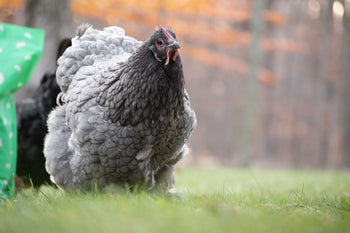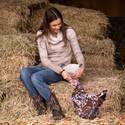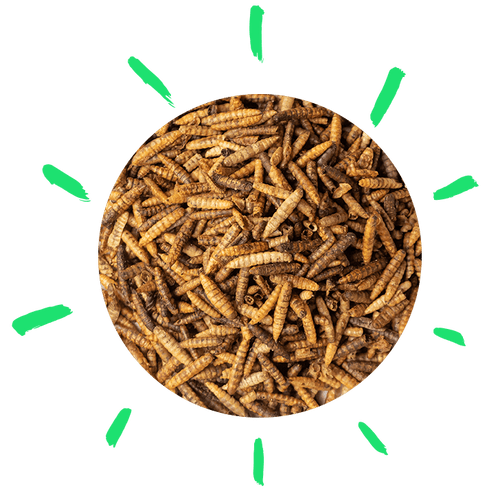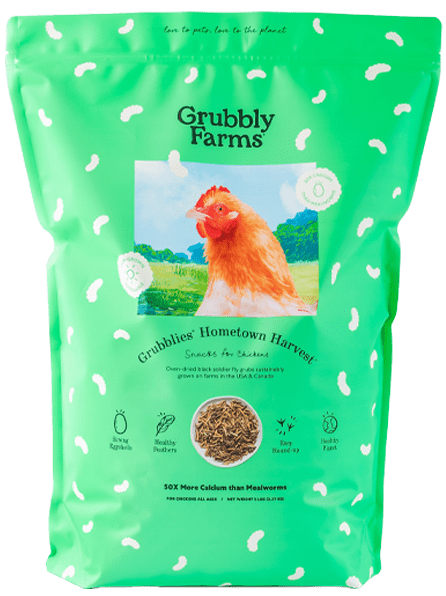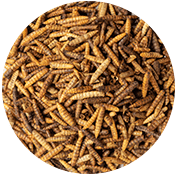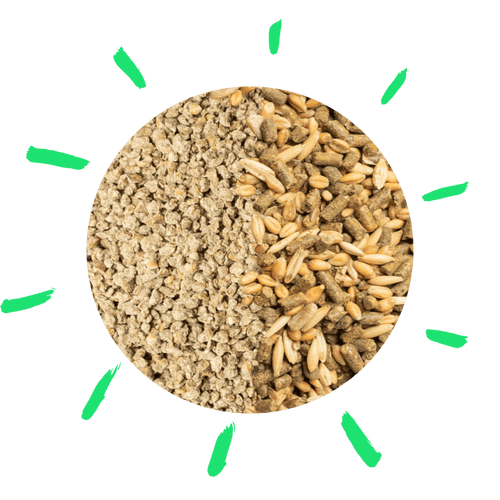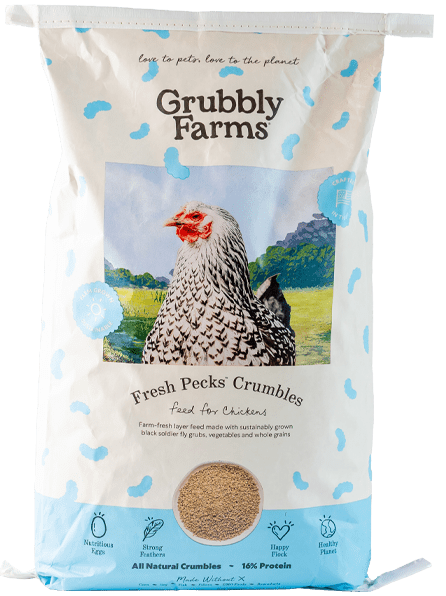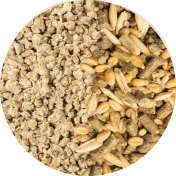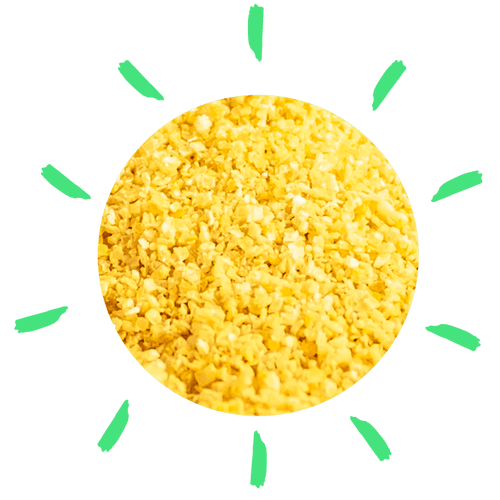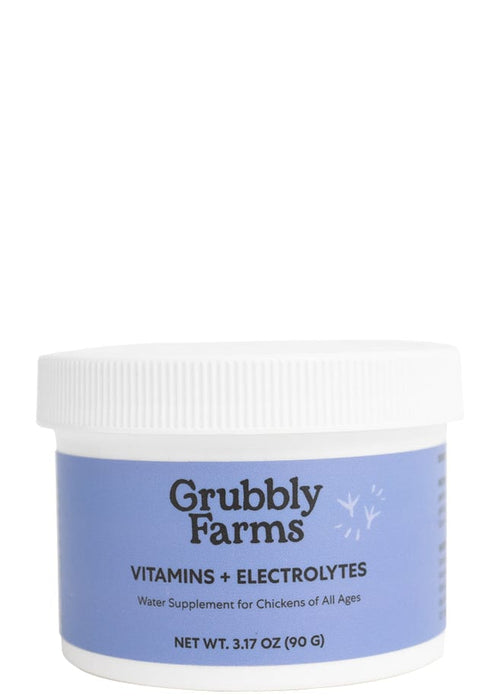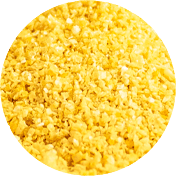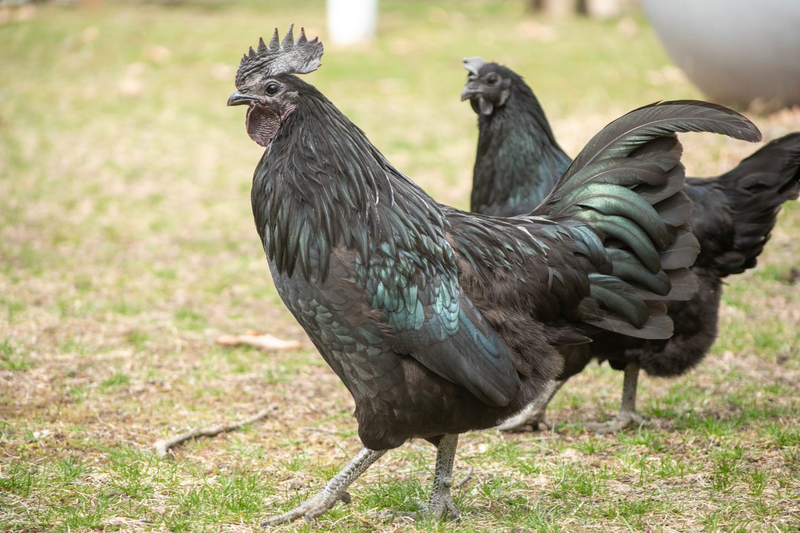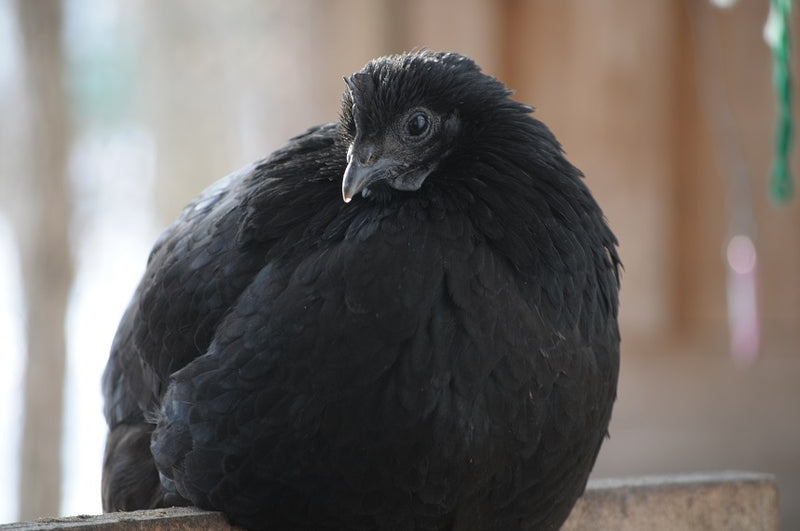Cochins are a large breed of chicken that has a rich history. It is one of the breeds that started the ‘Hen Craze’ and it was a well-loved breed of Queen Victoria. Cochins are not necessarily known for their egg or meat production, although they can be used for both. Instead, they are loved for their fluffy appearance and sweet, docile personalities. See how Cochins can be enjoyed by urban, suburban, and country chicken owners alike in this cochin breed deep dive!
History of the Cochin
Cochins were first introduced to North America around 1845. The early ancestors of the cochin breed looked nothing like the cochins we now have. The early progenitors of the cochin breed were called Chinese Shanghai Fowl. They had tight feathering much like our modern-day New Hampshire chickens. They were also clean-legged or only had light feathering on the shanks.
However, the breed became what it is now when fanciers started selecting birds more for their aesthetics and for show purposes rather than for eggs or meat. Queen Victoria was a well-known poultry enthusiast who loved the cochin breed and may have even helped initiate the ‘Hen Craze’ in the 1880’s to early 1900’s. During this time, the cochin was developed to be richly feathered with loose plumage, creating a fluffy chicken breed that is loved by many.
The Cochin was first admitted in the American Poultry Association (APA) in 1874. It is in the Asiatic class along with other large breeds like the Brahma and Langshan. There is also a bantam variety of cochin that is recognized by the American Bantam Association and is classed as a feather-legged bantam.

Unique Features of the Cochin Chicken
Cochins have a stunning appearance, partly due to their large size! However, standard cochins often look larger than they really are due to their vast amounts of fluffy feathers. A standard size cochin cock weighs about 11 pounds and a standard cochin hen weighs around 8.5 pounds. Bantam cochin cocks weigh about 32 ounces and bantam cochin hens weigh about 28 ounces.
Aside from their large size, cochin chickens are also known for two other distinctive breed features: their feathered legs and their fluffy plumage. Cochins have heavily feathered shanks and feet. Many times, the feathers are so lustrous that you can’t see the legs or feet on a cochin. Cochins are known for their dense, long, and soft plumage. They are one of the fluffiest chicken breeds because they have so many feathers!
Cochins often have a rounded appearance since the cushion of feathers on their rump and saddle area gives them a curved back that merges from the neck right into a short, rounded tail. Despite their smoothly curved appearance, cochins hold their heads high and upright, giving them an elegant stature.
Cochins have bright red combs and wattles. Both sexes have a single comb that stands upright and has five evenly serrated points. Their beaks are yellow with a shading of black in some individuals. Cochins have reddish/bay eyes and yellow-colored shanks and toes. The yellow coloring will fade in mature hens who are laying since the color is put towards the egg yolks instead of coloring the skin.
The cochin chicken also comes in many different varieties. The varieties accepted by the American Poultry Association include barred, birchen, black, black-tailed red, blue, brown, brown red, buff, buff Columbian, Columbian, golden-laced, lemon blue, mottled, partridge, red, silver-laced, silver-penciled, and white.
Meat or Layer Bird
While cochin chickens are often thought of as an ornamental chicken breed, they can be a dual-purpose breed as well. Cochins are suitable for both meat and egg production, they just aren’t at the same level as other breeds developed for those specific purposes.
Historically, the Chinese Shangia Fowl were raised for meat. Modern-day cochins will provide a large, meaty frame with yellow skin. However, they are not often used by commercial broiler operations due to their slow growth rates. A fully grown cochin will need 2 years to fully mature, however, cochins raised for meat can be butchered closer to a year in age.
Cochin hens are decent layers and can be a nice addition to a backyard laying flock. They are not well suited for the commercial egg industry since the hens don’t lay as prolifically or as frequently as hybrid egg laying breeds.
Egg Production
Cochin hens will lay around 180-200 eggs per year, which averages out to about 3-4 eggs per week. Their eggs are medium to large in size and brown in color. Some strains of the cochin breed will lay eggs that are slightly pink tinted.
Since cochins were developed more for appearance and not for egg production, the hens do not lay as prolifically as other breeds. However, cochin hens are excellent winter-time egg layers since they are not affected by cold stress as easily as other laying breeds. Cochin hens do require a little more time to reach production age and young cochins won’t start laying until they are around 8 months old.

Heat and Cold Tolerance
Cochins are very cold tolerant, but they are not as tolerant to heat. Due to their dense feathers, small comb and wattles, feathered feet, and large size, cochins are well-suited to cold-weather climates. Their dense plumage helps trap heat close to their body. Their small combs and wattles help conserve body heat and are less prone to frostbite. The feathers on their legs and feet also make those appendages more insulated and less prone to frostbite as well.
They won’t feel the effects of cold stress as soon as other chicken breeds and cochin hens are known to lay through the winter months even when other hens stop laying.
For the very same reasons that Cochins are cold hardy, they are not very heat tolerant. All those feathers aren’t exactly conducive to expelling body heat during hot weather. If you live in a climate that routinely experiences high temperatures, cochins may not be the best breed for your flock.
However, if you live in a region that only occasionally experiences hot temperatures, there are some measures you can take to help your cold-hardy cochins adjust to the warmer weather:
- Keep the coop shaded
- Place fans in the coop and run
- Use sprinklers to wet down the coop and run
- Provide pools of water for wading/walking in
- Offer cooling and hydrating treats
It may be tempting to get your cochins wet during extremely hot weather to help them cool off. However, this measure should only be taken when you suspect that a bird is starting to suffer from heat stress. Due to their dense feathers, cochins do not dry very quickly, and you will need to be aware of chilling even on hot days.
Common Health Issues
Cochins are a fairly hardy chicken breed, however, there are a few health concerns that you should know about when raising cochins:
- Bumblefoot
- External parasites
- Dirty feathers
- Obesity
You can easily take preventive measures to keep these health concerns from becoming an issue for your cochins. Give your cochins a monthly health check to inspect for any early signs of disease or illness before it becomes serious. In addition to monthly health checks, take these precautions to keep your cochins healthy:
Low roosts- Install low roosts in the chicken coop and run. Cochins are a heavy chicken breed that can’t fly very well. Additionally, low roosts can help prevent bumblefoot. Low roosts and soft, cushioned litter in the coop can prevent foot injuries when cochins get down from their roosts. By preventing foot injuries, you can prevent bumblefoot infections. Cochins like roosts that are only about 2 feet off the ground.
Rationed feeding- Due to their large size, cochins don’t like to be as active as other light-weight breeds. This can cause issues with obesity. Try rationing your cochins feed by only giving them the amount of feed they will eat in one day or only feeding them in the morning and evening. Limit their treats and snacks to only 10% of their daily diet and always feed treats and snacks in moderation.
Plenty of space- Make sure your cochins have plenty of space to move about in the coop and run. You can also let your cochins free-range. Encourage activity by putting enrichment elements in their run like low swings or logs. You can also throw some dried grubs in their run to encourage their natural foraging instinct. The more active you can keep the cochins the less likely they are to become obese.
Clean coop- Cochins need a clean and dry coop and run. Not only does a clean, dry coop and run prevent harmful organisms from thriving, but it can also help keep your cochins clean and dry. Since cochins have so many loose, fluffy feathers, they can often get dirty or wet easier than tightly feathered chicken breeds. A clean, dry coop and run will prevent moisture and poop from dirtying your cochins’ feathers.
Dust bath- Provide a dust bath for your cochins to use. Not only is dust bathing an instinctual behavior, but it is a great way to keep your cochins active and to prevent external parasites. External parasites can become an issue in chicken breeds who have lots of feathers, but dust baths are a natural way for birds to keep external parasites in check.

Cochin Chicken Lifespan
Cochins have an average lifespan of 8-10 years. The hens are usually the most productive for the first 3-5 years of their life, however, many hens will still continue to lay even after 5 years of age. Since the hens were not developed for egg production, they are less prone to reproductive issues such as ovary cancer, egg binding, or organ failure.
Factors the can influence the longevity of a cochin chicken include overall health, diet, care, and genetics. If you take preventive measures to keep your cochins healthy, it can increase their longevity by preventing disease and illness. A balanced, nutritious chicken feed with treats in moderation constitutes a healthy diet for cochins and proper daily care can help your cochins live a healthy, full life.
You will also want to pay attention to where you purchase your cochins. Well-bred cochins will have a longer lifespan than poorly bred cochins. Cochins bred to the breed standard will generally be hardier and healthier. Look for breeders who specialize in the cochin breed to get the best quality cochins!

Temperament
Aside from their fluffy appearance, cochins are also known for their gentle and friendly temperament. When breeding for appearance, fanciers also wanted a calm, friendly breed that did well at shows. Cochins who are handled with respect from a young age will be friendly, calm, docile, and even affectionate.
They are a great breed choice for families with small children since cochins don’t move very fast and are not aggressive. Even cochin roosters are known to be calm and friendly. The one exception to the cochin’s friendly personality are bantam cochin roosters, who can be a little cocky and territorial.
Cochins get along well with other chicken breeds and other pets. Since they are so large you might think they would be near the top of the pecking order, instead, they tend to be lower in the pecking order when other chicken breeds are present. Since cochins are calm and laid-back, they don’t tend to challenge other birds for a higher pecking order position.

Is the Cochin Great for a Backyard Flock?
Cochins make an ideal backyard chicken breed when you are looking for a chicken breed who is ornamental, great around kids, and still lays a handful of eggs each year too. Here are some traits that make cochins suitable for the backyard flock:
- Calm & friendly
- Easily contained
- Roosters are calm & docile
- Easy to handle
- Fluffy aesthetic appeal
- Great for showing
- Adapt to confinement or free-range
- Very cold hardy
- Hens make good mothers
If you are considering adding cochins to your backyard flock, there are a few other things you should consider as well. Standard cochins are a large chicken breed. Depending on how big of a flock you want to keep, you will need a spacious coop and run for cochins. They will also eat more food than other, smaller chicken breeds.
However, since cochins are so large, they are not great flyers. Which means that they can easily be contained. A fence as low as two feet is sufficient to contain mature standard cochins. The coop run should be fenced and covered in order to provide predator protection for cochins who can’t escape from predators as quickly as other breeds. However, low fencing can be used when keeping cochins out of the garden or contained in a free-range setting.
Cochins will free-range, however, they are not the best at foraging for a majority of their own food. They can supplement their diet with forage, but they won’t be self-sufficient like some other chicken breeds are capable of being.
Cochin hens also make great broody mothers. They are sometimes used as surrogate moms for hatching other chicken breeds who don’t tend to brood. A cochin hen will readily go broody and hatch whatever eggs you give her. Once the eggs hatch, she will also make a dedicated and thorough mother until the chicks are old enough to be on their own. Cochin hens are good choice if you want to try hatching chicks for the first time!
Conclusion
Cochins are a large, fluffy chicken breed who were developed for their appearance and calm personality. They are best known for their thick, fluffy, rich plumage and their friendly, docile personality. Cochin hens are decent layers of brown eggs, and they also make excellent broody mothers. Cochin roosters tend to be calm and not territorial. Cochins are a great backyard breed choice for families and for folks who want an ornamental chicken breed that is aesthetically pleasing to look at but isn’t lacking completely in the production department!





